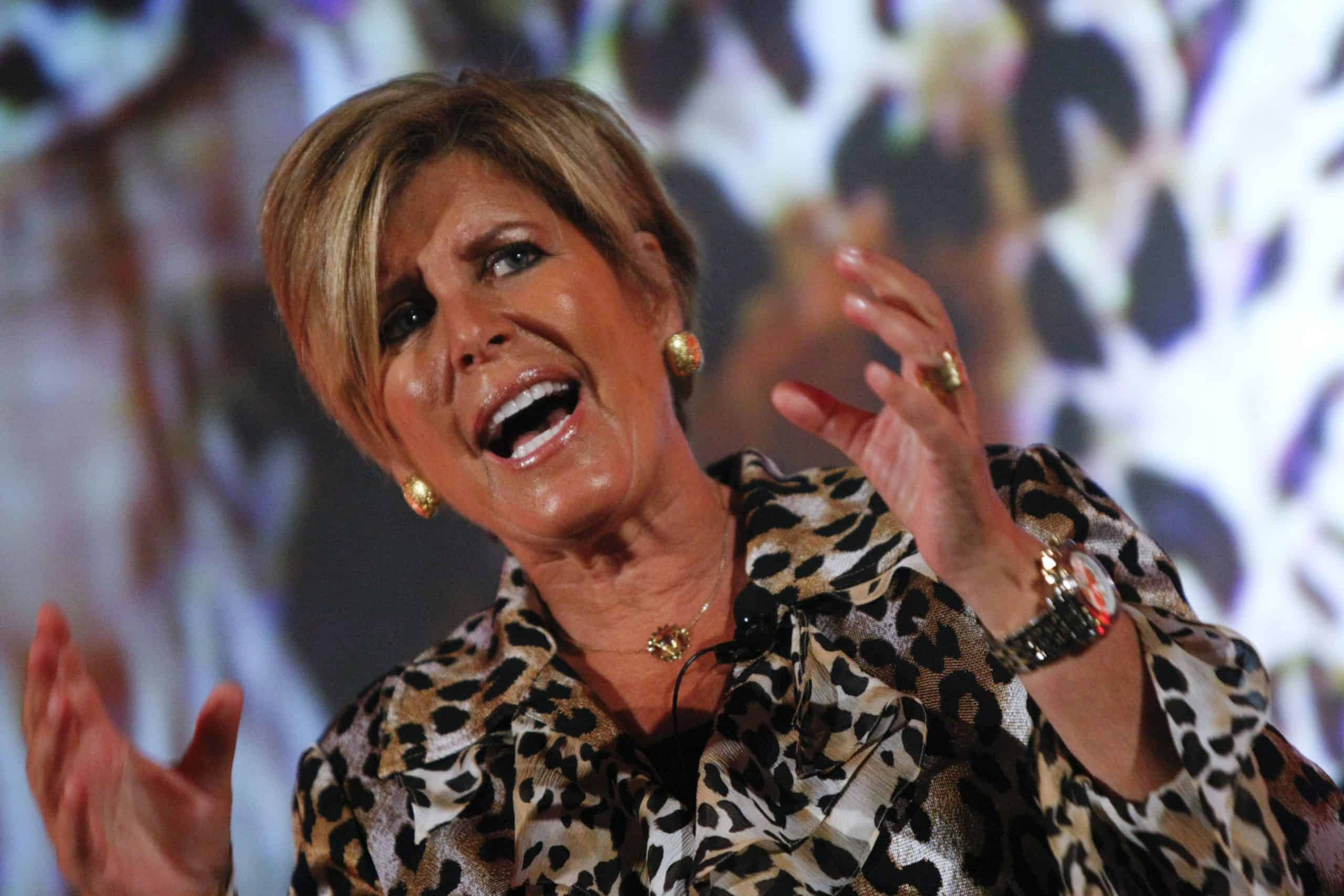Personal Finance
Suze Orman gets frank and says this is what is keeping you from building your wealth

Published:

Napoleon Hill is the grandfather of self-help and individual empowerment. His classic 1937 book “Think and Grow Rich” maintains that financial success is largely determined by one’s mindset. By following the application of certain principles used by the rich, Hill suggests that wealth is not just about financial acumen, but also the power of thought, desire, and persistent effort.
These sentiments have been repeated over the years by numerous self-help and personal finances gurus who maintain the first hurdle every person desiring to create fabulous wealth for themselves needs to get over is their own self-doubt.
This was brought to mind by a Suze Orman video from CNBC’s Make It show. She declares at the outset that “the biggest thing holding you back from building wealth is you.” Just by thinking that you can’t achieve something already sets you up for failure. Instead, you need to realize you can do it, but it requires that you change your mindset.
Hill’s similar philosophy has resonated for generations, not only due to its appeal to those seeking wealth, but also its universal applicability in overcoming many of the hurdles we all face in life. Suze Orman is just the latest tapping into this core of human psychology and ambition. Yet it endures because it is of its effectiveness.
At the heart of Hill’s teachings is the concept that our thoughts shape our reality. It’s not a new idea, but its simplicity has allowed it to survive.
His main idea is that our thoughts shape our reality. By focusing on what we truly desire and holding a clear vision of success, we create the motivation to keep going, even when things get tough. This concept of visualization, where you vividly imagine achieving your goals, is a powerful psychological tool. The law of attraction is a spiritual (not religious) belief that positive thoughts and actions lead to positive outcomes. Modern techniques like vision boards and goal-setting are based on the same principle as they help people stay motivated and focused.
For those who fail, it’s because they don’t see themselves as capable of achieving the results. As Orman say’s in her video, “you are likely your own financial obstacle.”
What also makes Hill’s teachings timeless is their focus on the basic human experiences of desire, belief, and persistence. These qualities are not limited by age or culture. They are part of our drive for growth and achievement. Even in a rapidly changing world, the principles remain a solid foundation for building success and overcoming obstacles.
As Orman notes, “you have to be more, in order to have more,” and that requires believing in yourself.
Ultimately, Hill’s philosophy, as well as Orman’s and those of countless other self-help professionals, isn’t just about getting rich. It’s about mastering your own mind. It allows you to turn failure into a source of strength and growth.
Orman likens it to being a warrior and not folding as soon as things get difficult. It’s not good enough to settle for just what you have and get by with little effort or determination. You have to want more and gird yourself for battle to achieve it. It requires being willing to do what’s necessary to succeed.
Because of its simplicity, the concept of “think and grow rich” is dismissed out of hand as pabulum. But in reality, it is not a bad blueprint for navigating all of life’s inevitable challenges. Overcoming your own self-doubt allows you to emerge stronger and quite possibly wealthier.
The last few years made people forget how much banks and CD’s can pay. Meanwhile, interest rates have spiked and many can afford to pay you much more, but most are keeping yields low and hoping you won’t notice.
But there is good news. To win qualified customers, some accounts are paying almost 10x the national average! That’s an incredible way to keep your money safe and earn more at the same time. Our top pick for high yield savings accounts includes other benefits as well. You can earn up to 3.80% with a Checking & Savings Account today Sign up and get up to $300 with direct deposit. No account fees. FDIC Insured.
Click here to see how much more you could be earning on your savings today. It takes just a few minutes to open an account to make your money work for you.
Thank you for reading! Have some feedback for us?
Contact the 24/7 Wall St. editorial team.